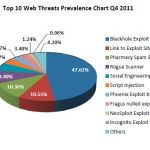Kindle Fire will become Amazon's cash cow

Amazon's fourth quarter results missed targets, despite strong sales of the Kindle Fire. It is these users that will begin to pad the company's earnings, however, validating Amazon's strategy of selling Fire at a very low margin and then making up the profit through entertainment content sales.
Amazon saw its profits plummet, reporting net income of $177 million in the fourth quarter of 2011. This was down sharply from a year earlier, when the retailer reported income of $416 million. Revenue was up 35 percent however, to $17.4 billion.
Facebook's IPO is light on guarantees, heavy on risk

So Facebook is set to go public today. It's the most anticipated initial public offering since Google in 2004, and may net the Menlo Park, Calif. social network between $5 billion and $10 billion, according to estimates. That said, I am still lost as to how Facebook's going to be able to wow Wall Street from quarter to quarter, and we all know that's what investors (and the tech press) are looking for.
The IPO will cause pandemonium on the floor of the New York Stock Exchange, as investors attempt to cash in on one of the most successful Web companies in history. This type of market hysteria is prone to pitfalls: fellow social networking site LinkedIn saw its shares skyrocket to nearly $95 in the first day of trading from an IPO of $45, but it has since given back about half of those gains.
Howard Stringer steps down, Sony looks to Kazuo Hirai to stop the bleeding

Sony will promote Kazuo Hirai to president and CEO in April, ending Sir Howard Stringer's six year reign as the company's chief executive. Hirai was Stringer's personal recommendation to succeed him, and Stringer will continue to serve in an executive capacity with the company as chairman of the board beginning in June 2012.
"Three years ago, I started to work with the Board on succession plans, and in February, 2009 we named a new generation of leaders to be my management team", Stringer says. "Among them was Kaz Hirai, who had distinguished himself through his work in the PlayStation® and networked entertainment businesses".
MegaUpload users may gain temporary access to their files

Users of MegaUpload may have a brief window to retrieve files from the site after the law firm representing the file sharing service says it is negotiating a solution with the US Government. While the primary function of the negotiations is likely to gather evidence so that MegaUpload's lawyers can build their defense, it is possible the general public may temporarily gain access to their accounts.
In the United States, the file sharing service uses two hosting providers to store data, Carpathia Hosting and Cogent Communications. When US authorities shut down the service two weeks ago, it also froze MegaUpload's assets, leaving it no money to pay bills.
Go ahead, use pcAnywhere again -- after you update

A week after telling users to disable its pcAnywhere, Symantec says the remote computing software is now safe to use, with a few caveats. First, the app must be upgraded to version 12.5, and a critical software patch applied to plug the hole.
In a statement posted to its website, Symantec says that it had patched all versions of the software back to 12.0. A patch for 12.0 and 12.1 was released on January 27, following a patch that was released for 12.5 on January 25.
Amazon cloud services see dramatic growth in 2011

Usage of Amazon's cloud services skyrocketed in 2011, with the company reporting that its cloud storage service Amazon S3 played host to 762 million objects as of the fourth quarter of 2011. This was up by 500 million objects over last year, year-over-year growth of 192 percent and the biggest expansion in the service's five year history.
Amazon credits the large jump in making it easier for users to get data into the system via a host of new features introduced over the past year. It also says the jump in cloud usage requires manpower, and it is hiring for software engineers, product managers, and other management postions for the S3 team.
Thanks, Verizon! Shared data plans are long overdue

We've all been sharing minutes in our family plans. This worked in an age where our phones were dumb, and the most we did was text and occasionally check the web. Times have changed though with all these smartphones in the wild, but the carriers have not. Where's our shared data plans?
Color me shocked, but Verizon is joining that charge. The nation's largest carrier said last month that it was introducing pooled data plans this year, and a new post on Engadget indicates this may be coming sooner than we think. A new section lists "account level data plans". Like your minutes you pay an account level charge, then a per line charge.
Google, Microsoft, Yahoo look to stop phishing attacks

A group of fifteen technology and email providers announced plans Monday that aim to curb the spread of phishing e-mails by making it more difficult for scammers to impersonate legitimate e-mails. The agreement calls for the use of preexisting standards to authenticate messages on a much wider scale than ever before.
Currently, PayPal is one of the few companies using the technologies, known as SPF (Sender Policy Framework) and DKIM (DomainKeys Identified Mail). Its work only has limited effectiveness though as so far it only has working partnerships with Yahoo and Google.
Apple, the enterprise, and the marginalization of the cultists

For a company left for dead a little over a decade ago, Apple's return to relevancy and in some cases supremacy is stunning. Love or hate the company, few others have accomplished a similar feat. Now one of the last dominoes left to fall -- the enterprise sector -- is set to embrace the platform.
Forrester Research finds that one out of every five IT employees use one or more Apple products at work. This is not completely by their own request: half of all corporations of 1,000 employees or more now issue Macs to at least some of their work force, with an average of a 52 percent increase in deployments slated for 2012.
Microsoft invests $1 billion to sell a million Nokia Windows Phones

At face value, Nokia's results for Windows Phone are solid. One million Lumia devices sold in just its first quarter of availability. The sales add a bright spot to an otherwise gloomy Nokia calendar fourth-quarter earnings report, where smartphone sales slid 31 percent amid a 21 percent year-over-year drop in revenues.
The real story here though is the cost to Microsoft to ensure that success. Microsoft agreed to pay Nokia $1 billion to abandon Symbian as primary operating system for Windows Phone, according to reports soon after the deal was announced in February 2011. The Redmond, Wash.-based company paid Nokia $250 million in the fourth quarter for "platform support payments", meaning each device cost Microsoft about $250 before any royalty payments received. That's a run rate of a billion dollars per year. So just how much is Nokia giving back to Microsoft?
Symantec tells users to stop using pcAnywhere amid security breach

It's not often when a developer tells you outright not to use its software, but that is exactly what Symantec is forced to do in light of the theft of source code. Last month, Hacktavist group Anonymous bragged that it had possession of code that powers several applications, including Norton Antivirus Corporate Edition, Norton Internet Security; Norton SystemWorks and pcAnywhere.
Symantec says the code theft originally occurred in 2006. While at first security experts believed the theft to only be a black eye for the company's reputation, it now appears that the incident is far more serious. Symantec recommends users of pcAnywhere stop using the software immediately until there is a solution to address any security concerns.
What are the top domains used for spam?

It's likely that most will expect domains belonging to popular web-based e-mail services are at the top of the list for the mountains of spam we receive everyday. That's not the case: the most common spam domains according to Chelmsford, Mass.-based security firm AVG are social networks.
Facebook tops the list at 7.3 percent, followed by Twitter at 4.2 percent. Considering these are the top two social networking sites, that's not too surprising. How about Google+? Hard to say since it doesn't have its own domain, nor did google.com appear in the list AVG supplied us. LinkedIn also appears, but way down in eighth at 1.5 percent of all spam.
The top-10 web security threats you should avoid

The compromised website is still the most effective attack vector for hackers to install malware on your computer with 47.6 percent of all malware installs occurring in that manner, says security firm AVG. Another 10.6 percent are tricked into downloading exploit code -- many times, without their knowledge -- by clicking on links on pages to sites hosting malware.
The Chelmsford, Mass. company announced its findings as part of a broader study of threats detected by its software. It also found that faked pharmacy sites are a popular attack method, seen in about 10.4 percent of all attacks.
MPAA chief Chris Dodd fights off allegations of bribery

Opponents of the Motion Picture Association of America are using the US Government's recently created "We The People" online petition service to force the Obama Administration to take a position on some controversial comments by former Conn. Senator-turned MPAA chief Chris Dodd to Fox News last Thursday.
By Tuesday afternoon, the petition had already passed the 25,000 person threshold to trigger a response from the White House. With over 27,500 signatures, it is gaining about 1,000 signatures an hour. Stop Online Privacy Act and PROTECT IP Act protesters are not satisfied with killing the bill alone: they want heads to roll.
Microsoft says botnet chief was former antivirus vendor employee

Microsoft spent a good deal of time dismantling the Kelihos botnet last year, making it the first takedown where it was able to name actual defendants behind it. On Monday it made the suprising announcement that its latest defendant, Andrey N. Sabelnikov, had previously worked for an antivirus software vendor.
According to information on the Web, Sabelnikov worked for two Russian security vendors: Agnitum, a firm that produces firewall and antvirus software for PCs from September 2005 to November 2008, and Retunil from November 2008 to December 2011.
Ed's Bio
Ed Oswald is a freelance journalist from the Reading, PA area. Although he has written across a variety of subjects, Ed’s passion and focus has been on technology and gadgets. His work regularly appears on tech news sites BetaNews, PCWorld, and Technologizer, and has been syndicated to eWeek, Time’s Techland blog, VentureBeat and the New York Times.
Ethics StatementBetaNews, your source for breaking tech news, reviews, and in-depth reporting since 1998.
Regional iGaming Content
© 1998-2025 BetaNews, Inc. All Rights Reserved. About Us - Privacy Policy - Cookie Policy - Sitemap.
